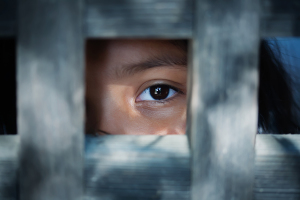Kenya Still 'Urgently' in Need Despite Return of Rains
Though weather officials in Kenya expect this season's rainfall not to fail as it has the past three years, those working to provide relief in the country are reminding the global community that millions of hungry people still need food aid.
Furthermore, the heavier rainfall may actually do more harm than good.
"[T]he rains are predicted to be heavier than usual because of the El Nino weather phenomenon. This will only serve to increase food insecurity by destroying topsoil and causing possible displacement of communities," reported Fergus Conmee, head of the Catholic Agency for Overseas Development (CAFOD)'s Humanitarian Programs for Africa.
The rains could also bring a host of health problems including cholera, diarrhea and other diseases spread through dirty water usage as people struggle to survive the extreme conditions they find themselves in.
"We can ill-afford not to act now," Conmee added.
Currently, nearly 3.8 million people in Kenya face chronic food and water shortages following three consecutive years of failed rains. The drought has led to crop failure, deaths of herd animals and widespread hunger.
"The droughts are so frequent and so severe now that communities are lurching from one crisis to the next, without any time to recover," Conmee reported.
Though the Kenyan Government and the U.N. World Food Program (WFP) are providing some food aid to some 4.4 million Kenyans, CAFOD reported that it is not enough to meet local needs.
The U.K.-based agency has pledged half a million pounds ($815,000) to save lives in many parts of East Africa. It is also seeking to raise at least one million pounds ($1.63 million) more to support the vulnerable people's immediate needs for food and water as well as enhance communities' longer-term recovery and resilience to future droughts.
"[I]nitiatives such as early warning systems, growing drought resistant crops, practicing sustainable land use, and knowing when to sell livestock in preparation for a drought all contribute to community preparedness," explained CAFOD's Disaster Risk Reduction (DDR) adviser, Jessica Mercer.
"This is a slow and gradual process which builds the resilience of communities to future droughts, with the ultimate aim of reducing the need for humanitarian assistance," she added.
Aside from the people of Kenya, money raised from CAFOD's appeal will also be used to support communities affected by drought in neighboring countries.
In Eritrea, CAFOD is feeding young malnourished children and new mothers. In north-eastern Uganda, the agency is providing food under a food-for-work scheme, which is building water points, and providing extra food for the vulnerable.
On the Web:




























